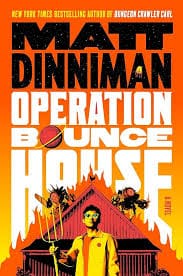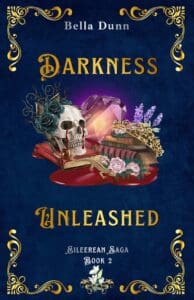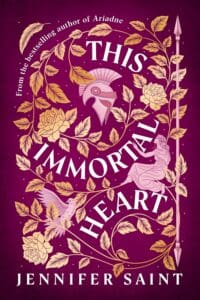
Synopsis:
Writer Everly Bainbridge’s life is left in ruins when her husband takes their child to the supermarket one day and a lorry collides with their car. After the accident, a lawyer appears on her doorstep and tells her her husband was not who he said he was and she is a very rich widow. She retreats to a lonely house in the countryside to recover. But there’s a well in the cellar, a spectacularly cold room, and one night, Everly wakes up with a foot hanging over the emptiness of the well and the echo of her daughter’s voice in her ears…
A short, sharp, emotionally layered story of horrific secrets and dangerous lies, this dark, fierce gem of a novella will keep you turning the pages late into the night…
Review:
A stunning meditation on grief that reeks of clove cigarettes and is full of secrets, sorrow and snark- A.G. Slatter’s “The Cold House,” is as hilarious as it is chilling. An unflinchingly mordant, beautifully executed single-sitting ordeal, Slatter’s latest (my first by her, go on, slap my wrist, I deserve it) comments on motherhood, the highs and lows, and what having it stripped away can do to a person… says a man who can’t even keep a house plant alive. I do try…really. Anyway, with the gallows humour of a fart at a funeral and further commentary upon religion, misogyny, identity, rebellion as it appears in the gothic, secrecy, capitalist rot, grief and the guilt that comes with its absence- it’s safe to say Slatter covers a lot of ground with this twisty, twisted little book. “The Wickerman,” meets Ronald Malfi’s “Come With Me,” meets Clay McLeod Chapman in this folkish feverdream that you can tumble into yourself from October 7th when it’s unleashed upon the world by Titan. Do bundle up though, it’s cold down there.
We follow Dr. Everly Bainbridge who is standing in the ruins of her own life, her husband Nick and daughter Ruby both snatched away in a car accident. One would think that that’s quite enough for Everly to grapple with, and yet, when Albert Lowen of Higgins & Hyde turns up on her doorstep, her world shifts monumentally once again.`Nick Mitchell was hiding something- quite a large small fortune indeed- that is now left to Everly. Finding herself increasingly lashing out, uninspired to write, and debilitated by her grief, she opts to let Lowen use some of this cash to organise her a house-sit. In a new car she travels North East to the quiet village of St Jude’s (patron saint of lost causes incidentally) only to find that she’ll be staying in what can only be described as a mansion. It’s giant, and seems entirely unsuitable for healing. The size of it though, is the least of her worries, as she begins to learn about its bloody history and hear familiar voices from the basement, it begins to seem like grief is not the only thing haunting Everly Bainbridge.
Themes of parenthood and grief are inherently wrong and horrifying when smooshed together, and that’s exactly what “The Cold House,” does. Slatter examines not only grief, but as I said earlier, the feeling of guilt toward the times where grief may briefly subside. A guilt that manifests in every little joy in life, as well as of course in more traditionally gothic ways. Slatter also examines grief in tandem with betrayal, through the shattered lens of broken trust and contempt. How can you grieve a husband when you didn’t know who you were married to? It’s the same internal struggle faced in something like Karin Slaughter’s “Pretty Girls,” and it always hurts my heart. It’s the loss of not just a person, but of their memory too and the narrative you’d written about your own life. The grief that Everly experiences is not palatable or gentle or anything like Emily Dickinson says it is, but raw, unsanitised and inconvenient.
Horror stories that hinge upon folklore and religion make for great commentary upon misogyny and the historical mistreatment of women, because duh. This was the case with Gemma Amor’s “Itch!” which I reviewed earlier in the week, and this is the case with “The Cold House,” too, from the burning of witches to plain, modern day ignorance. Slatter also approaches motherhood from this angle, representing it, yes as an absolute joy and now, an aching absence, but equally as conformity and confinement. Motherhood is represented as sacred but equally, sacrificial something that flattens, restricts and demands. Alongside the folk horror, ancient, creeping, religious, there’s a certain systemic horror- patriarchy, capitalism, class are all prevalent in these 160 pages. “The Cold House,” is lean and loaded and it’s truly impressive.
I haven’t even covered half of it honestly- I think somehow if I did my write-up would outgrow the book itself and sprawl into a novella of its own- I love a ramble. It’s compact but cavernous, compulsively readable, dripping with atmosphere, and I must stress, really quite hilarious, “The Cold House,” is everything I wanted it to be. I have consulted with trusted sources and I’ll absolutely be doing “The Path of Thorns,” very soon, so do keep your eyes peeled for that over the course of the next half decade or so. For now though, “The Cold House,” has flung open the creaking cellar door to a writer I should have read years ago and I am marching down those stairs.









Leave a Reply